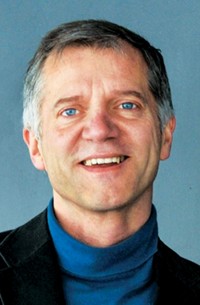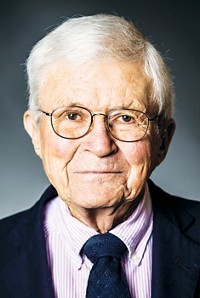Advertisement
Grab your lab coat. Let's get started
Welcome!
Welcome!
Create an account below to get 6 C&EN articles per month, receive newsletters and more - all free.
It seems this is your first time logging in online. Please enter the following information to continue.
As an ACS member you automatically get access to this site. All we need is few more details to create your reading experience.
Not you? Sign in with a different account.
Not you? Sign in with a different account.
ERROR 1
ERROR 1
ERROR 2
ERROR 2
ERROR 2
ERROR 2
ERROR 2
Password and Confirm password must match.
If you have an ACS member number, please enter it here so we can link this account to your membership. (optional)
ERROR 2
ACS values your privacy. By submitting your information, you are gaining access to C&EN and subscribing to our weekly newsletter. We use the information you provide to make your reading experience better, and we will never sell your data to third party members.
Analytical Chemistry
Frank H. Field & Joe L. Franklin Award for Outstanding Achievement in Mass Spectrometry
January 23, 2006
| A version of this story appeared in
Volume 84, Issue 4

Sponsored by Bruker Daltonics
The chance to do research as an undergraduate completely changed the course of Richard M. Caprioli's scientific life. The world lost a pharmacist but gained a biochemist and mass spectrometrist. Caprioli, 62, is now a professor in the departments of biochemistry, chemistry, and pharmacology at Vanderbilt University and the director of the Mass Spectrometry Research Center at the Vanderbilt University School of Medicine.
As an undergraduate in Columbia University's College of Pharmacy, he had the opportunity to do undergraduate research in chemistry where he made new synthetic penicillins. "It didn't change the world," he says, "but it sure changed my attitude about what I wanted to do in life." He had been bitten by the research bug, and there was no turning back. He finished his pharmacy degree only so he could work weekends to put himself through graduate school.
Caprioli went to Columbia University for grad school, where he worked under the mentorship of biochemist David Rittenberg. It was here that Caprioli was introduced to the mass spectrometer, an instrument that has followed him ever since. "I was taught the use of stable isotope mass spectrometry and became enamored with its possibilities. I decided that I wanted to use this as a main tool in my research," he says. He received his Ph.D. in 1969.
"Over the past 20 years, Richard Caprioli has been one of the people most responsible for the revolution of mass spectrometry in biochemistry," says R. Graham Cooks, a chemistry professor and mass spectrometrist at Purdue University. "He has developed new mass spectrometry technologies, and using his training as a biochemist, he has applied them to the study of the structure, metabolism, and function of peptides and proteins."
Caprioli is most closely associated with the development of imaging mass spectrometry using matrix-assisted laser desorption ionization (MALDI) MS. As MALDI became well-developed as a technique, Caprioli started wondering if it could be used to look at molecules in tissues. Once people started looking at tissues, it was only one more leap to looking at their spatial orientation, and MALDI imaging was born. "His development of tissue imaging for specific biological compounds is a technological and chemical tour de force, which is being applied to significant biomarker compounds in a research and clinical setting," Cooks says.
Now, Caprioli is interested in the "translational" aspects of MS imaging, such as applying it to medical care. "I'm very interested in taking the molecular tools that we have developed and applying them to disease to help clinicians treat patients," he says. "We're certain the study of proteomics in particular will have a profound effect in that regard." In collaboration with physicians, he is applying imaging to the study of disease, particularly cancer.
Although he doesn't consider himself a "card-carrying" mass spectrometrist, Caprioli has been active in the field. He served as president of the American Society for Mass Spectrometry, and he received the 2003 Thomson Medal from the International Mass Spectrometry Society.
The award address will be presented before the Division of Analytical Chemistry.-Celia Arnaud




Join the conversation
Contact the reporter
Submit a Letter to the Editor for publication
Engage with us on Twitter